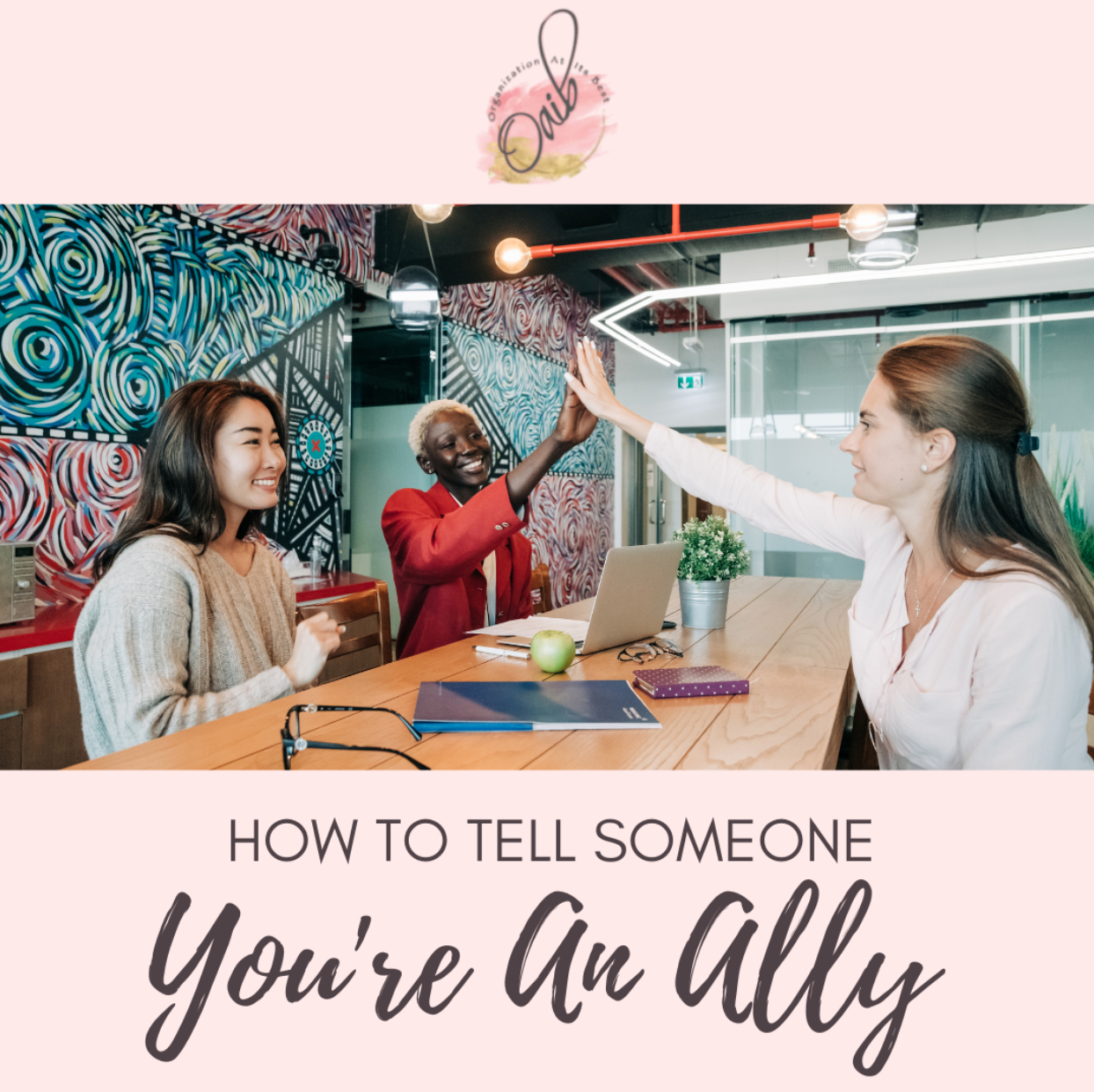
JUNE 8, 2022
How To Tell Someone You’re An Ally
We all need allies.
In DEIB work, an ally is someone who helps advance the interests of historically excluded groups. Allies play a critical role in bringing equity to life in an organization.
People of Color, women – or anyone else for that matter – need allies who are willing to use their influence and power to eradicate discrimination and confront workplace injustice, bias, inequities, disparities, and racism.
I’m guessing you’re an ally, as you’re reading this post!
Thank you for being brave.
Let me ask… Have you made yourself known to marginalized groups in your workplace? Have you shown up as a person who is known for creating safe spaces for the disadvantaged to come and share their challenges?
It’s actually a delicate conversation and easy to mess up.
Even if you’re well-intentioned, it’s easy to give marginalized groups the wrong impression.
Here are a few tips on what to say, not to say, and how to identify yourself as an ally.
Make It Short, High Level & At The Right Time & Place
Keep in mind that it may feel weird to a marginalized person if you are too forward or direct, especially if you appear to assume you know what they want or need.
A great time to identify yourself as an ally is when they first join the company, during the onboarding process.
If your organization onboards people in groups, take advantage of the group setting to introduce yourself and offer support, without being too forward. You might say something general like:
“Hi, my name is Tom, and I’m in the finance department. If you’re feeling like you don’t know anyone or are struggling with navigating our organization’s culture, I’d love to extend my support. If I can be a resource or a connector in any way, my door is open. I consider myself to be an ally.”
That’s it.
Keep it general and simple but state you are available, should they want to reach out.
Here are some things not to say:
Avoid anything that will single someone out as being different, give people the impression you see yourself as a “savior of those less fortunate,” and please don’t make this about you.
Just keep it simple with an offer to answer questions about the job or organization.
If someone wants to open up to you, it may take multiple conversations, so be careful not to overcommit or make promises you can’t keep.
Take the time to build rapport, always being authentic and listening to their needs first, never presuming you know what the other person wants or needs.
Remember the phrase: “How can I help? What does support look like to you?”
How Organizations Can Support Allyship
We encourage our clients to create a list of allies to give to each new hire. Let people volunteer to be on the list, then circulate or post it.
We also recommend making time during orientation for a few self-identified allies to come in and briefly introduce themselves to new hires. You can do it as a rotation.
Some clients have had great success integrating a “Workplace Allies For People of Color” training and materials into their process.
The most successful have coached their allies, so they don’t come on too strong or direct, but instead are genuine, authentic, and good listeners.
Please also recognize that people have the right to accept your offer or not. This is optional.
If you want support improving your onboarding experience or allyship, contact us.
Organization At Its Best Founder and Chief Executive Officer, Tawana Bhagwat, has more than twenty-five years of experience directing Human Resource administration, change management, learning and development, facilitation, DEIB, and executive coaching.

